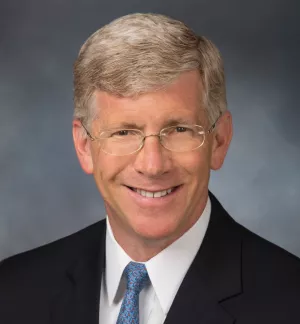Forging a New Consensus to Fight Climate Change and Weapons Proliferation
Today, we face two existential threats: nuclear annihilation and catastrophic climate change. Each stems from human origins. Both must be fought aggressively.
Multiple studies confirm the grim truth that, even if all nations fulfill their Paris Climate Agreement emissions pledges, the world will still far overshoot the 2°C warming limit scientists say we must not exceed to prevent devastating climate impacts.
Carbon-free nuclear energy can help close the gap. But can we expand its environmental benefits without increasing the risks of nuclear terror?
Former Deputy Secretary of Energy and Belfer Center Senior Fellow Daniel Poneman says we can and we must. A renewal of American nuclear leadership, he argues, is urgently needed to confront climate change and make nuclear energy more safe and secure.
In this report, American Nuclear Diplomacy: Forging a New Consensus to Fight Climate Change and Weapons Proliferation, Poneman outlines a diplomatic strategy and tough-minded, bipartisan policies to get us there. Specifically, the United States should take the following steps:
-
Combat nuclear proliferation with every tool at our disposal.
-
Forge a bipartisan consensus that promotes peaceful nuclear cooperation with all nations that comply with global nonproliferation norms.
-
Promote a strong American nuclear industry to lower carbon emissions while encouraging best practices globally for nuclear safety, security, and nonproliferation.
-
Reject a “go-it-alone” strategy of uniquely restrictive unilateral U.S. conditions on peaceful nuclear cooperation that exceed the already-strong, U.S.-led international rules of nuclear commerce – an approach that alienates prospective nuclear energy partners and drives them into the arms of our competitors.
-
Establish an “Assured Nuclear Fuel Services Initiative” so that all nations meeting global nonproliferation norms will enjoy guaranteed access to those services, minimizing the need to build facilities that could separate plutonium or produce highly-enriched uranium.
-
Avoid “light-switch diplomacy” that undermines U.S. credibility by changing the rules in the middle of the game.
-
Collaborate with other nations, including Russia and China, to tackle the world’s toughest nonproliferation challenges.
-
Expand multilateral efforts to impose severe penalties that will drive North Korea back to the negotiating table, containing and then rolling back its nuclear weapons program.
-
Strengthen America’s security presence in Northeast Asia to protect its allies and vital interests in the face of North Korean threats.
To combat nuclear proliferation, the United States must exercise effective global leadership, Poneman says. But we must first put our own house in order by unleashing nuclear energy’s potential to lower carbon emissions, and by reinvigorating U.S. competitiveness in the global nuclear marketplace. Through these steps, we can build a future where nuclear energy—supported by deeply-embedded policies and practices that ensure its peaceful use—plays an indispensable role in securing a safer, healthier world for generations to come.
A PDF of the full report is attached below.
Poneman, Daniel. “American Nuclear Diplomacy.” Belfer Center for Science and International Affairs, Harvard Kennedy School, August 4, 2016





